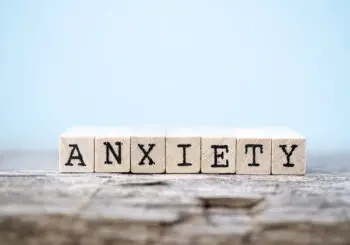Guest Writers for Wake Up World
In the fast-paced, interconnected world we live in today, stress and anxiety are becoming increasingly common. According to the World Health Organization, global rates of anxiety disorders have been steadily climbing, affecting millions of people around the world.
These conditions can significantly impact a person’s quality of life and overall well-being. They can disrupt sleep, affect cognitive performance, and even increase the risk of developing chronic diseases.
While pharmaceutical solutions are often the first line of treatment, many are beginning to question the long-term effects and efficacy of these drugs. For those seeking natural alternatives, the good news is that there are myriad ways to manage stress and anxiety without the use of pharmaceuticals.
1 | The Power of Prayer
Prayer holds an immense and transformative power in managing and overcoming anxiety. As Christians, we are urged to take all our worries, fears, and anxieties to God in prayer, trusting that He is an ever-present help in our times of need. In Philippians 4:6-7, the apostle Paul writes, “Do not be anxious about anything, but in everything, by prayer and petition, with thanksgiving, present your requests to God. And the peace of God, which transcends all understanding, will guard your hearts and your minds in Christ Jesus.”
Indeed, the Bible consistently guides us to lean not on our own understanding but to seek solace and strength in God’s presence through prayer. In 1 Peter 5:7, we are instructed to “cast all your anxiety on Him because He cares for you.” This casting is not a physical act, but a spiritual one. Through prayer, we release our worries and fears into God’s hands, trusting in His supreme authority, His unfailing love, and His promise of peace and comfort.
Moreover, prayer shapes our hearts and aligns our minds with God’s will, giving us the divine perspective to view our challenges. We may not have the power to change the circumstances that cause anxiety, but through prayer, we are granted the strength to endure them. As it is written in 2 Corinthians 12:9, “But he said to me, ‘My grace is sufficient for you, for my power is made perfect in weakness.’” Through prayer, we experience God’s grace, His sufficient provision for us amidst our struggles.
It’s important to note that prayer isn’t a magical solution that instantly eliminates anxiety or its causes. Instead, it’s a relationship with our Creator, who offers peace and comfort during our times of distress. As we pray, we remind ourselves of His truths and promises. This shift in focus from our worries to God’s faithfulness brings a profound sense of peace, as indicated in Isaiah 26:3, “You will keep in perfect peace those whose minds are steadfast, because they trust in You.”
The power of prayer lies in the connection it establishes with God. It is a humbling yet empowering process that enables us to surrender our anxieties to the One who is greater than all our fears. Prayer invites God’s presence into our lives, reassuring us of His care, love, and power over every situation we face. It’s a divine antidote to anxiety, providing us with a sense of peace that surpasses all human understanding.
2 | Physical Exercise
Physical exercise is a potent stress-buster. Regular physical activity increases the production of endorphins, your body’s natural mood lifters. It also helps in improving sleep quality, boosting self-confidence, and promoting overall feelings of well-being.
Different types of exercise offer unique benefits. For example, aerobic activities like running, swimming, or cycling can help decrease overall levels of tension, elevate mood, and improve sleep. Yoga, a mind-body practice, can help reduce stress, lower heart rate and blood pressure, and enhance relaxation.
It’s not necessary to engage in strenuous workouts to experience the stress-relieving benefits of exercise. Even gentle forms of movement such as walking or stretching can help. The key is to find an activity that you enjoy and make it a regular part of your routine.
3 | Healthy Diet
The foods we eat can significantly influence our mood and stress levels. Certain foods can induce a stress response, while others can promote relaxation. Eating a balanced, nutrient-dense diet can provide the necessary fuel for your body to cope with stress.
There are some foods that are especially helpful for reducing anxiety. Here’s a list of top 10 foods that have been scientifically proven to reduce stress:
Berries: Packed with antioxidants, berries can help your body combat stress.
Dark Chocolate: A powerful source of antioxidants, dark chocolate has been shown to reduce stress hormones.
Turmeric: The active compound in turmeric, curcumin, has been shown to reduce anxiety by lowering inflammation and oxidative stress.
Green Tea: Rich in antioxidants and amino acid L-theanine, green tea can have a calming effect on the mind.
Avocado: Avocados are rich in B vitamins, which are necessary for healthy nerve and brain cells.
Yogurt: Probiotic-rich foods like yogurt can improve gut health, which is closely tied to mood and overall mental health.
Salmon: A great source of omega-3 fatty acids, which have been shown to reduce anxiety.
Spinach: Packed with magnesium, a mineral that can induce feelings of calm.
Almonds: Rich in vitamin E and antioxidants, almonds can counteract the damaging effects of stress.
Seeds (Flaxseed, Chia seeds, Pumpkin seeds): Seeds are high in magnesium and fiber, which can help control stress and anxiety.
4 | Adequate Sleep
Getting a good night’s sleep is crucial for managing stress and anxiety. Chronic lack of sleep can exacerbate feelings of stress and make it harder to cope with daily challenges. It can also affect mental clarity and mood, making it more difficult to manage stress effectively.
Creating a sleep-friendly environment can help promote better sleep. This might involve maintaining a cool, dark, and quiet bedroom. Developing a regular sleep schedule and a relaxing bedtime routine can also signal to your body that it’s time to wind down and prepare for sleep.
If you’re struggling with sleep, consider seeking professional help. Certain therapies, such as cognitive-behavioral therapy for insomnia (CBT-I), can be effective in addressing sleep issues. This approach focuses on changing unhelpful beliefs and behaviors around sleep and can be an effective natural remedy for insomnia.
5 | Nature Exposure
Spending time in nature can have a profound impact on stress levels. Numerous studies have shown that nature exposure can lower cortisol levels, decrease heart rate, and improve mood. Even just a short walk in a park can have significant stress-reducing benefits.
One particular practice, known as forest bathing or Shinrin-yoku in Japan, involves immersing yourself in a forest environment. This practice has been associated with numerous health benefits, including reduced stress and improved immune function.
If access to natural spaces is limited, even bringing elements of nature indoors can be beneficial. Indoor plants, nature sounds, or pictures of nature can all help create a more relaxing environment.
6 | Social Connection
Human beings are inherently social creatures. Having strong social ties can help buffer against the negative effects of stress. In contrast, loneliness and social isolation can exacerbate feelings of stress and anxiety.
Nurturing relationships with family and friends can be an essential part of a natural stress management strategy. This might involve regular catch-ups, shared activities, or simply providing a listening ear to each other. Even just a hug from a loved one can trigger the release of oxytocin, a hormone that promotes feelings of relaxation and reduces stress levels.
In today’s digital age, maintaining social connection can also be done virtually. Video calls, online communities, and social media can all provide platforms for staying connected with others. However, it’s important to ensure that digital connections don’t replace face-to-face interactions, as the latter are generally more fulfilling and effective at reducing stress.
7 | Breathing Techniques
Breathing techniques offer a simple, yet powerful, tool for stress reduction. When we’re stressed, our breathing tends to become shallow and rapid. By consciously altering our breathing pattern, we can signal to our body that it’s time to relax.
One effective technique is diaphragmatic breathing, also known as deep breathing. This involves breathing deeply into your diaphragm rather than shallowly into your chest. Diaphragmatic breathing can help lower heart rate and blood pressure, promote relaxation, and reduce feelings of stress and anxiety.
Another effective breathing technique is the 4-7-8 technique. This involves inhaling for a count of four, holding the breath for a count of seven, and then exhaling for a count of eight. This technique can help promote relaxation and reduce feelings of anxiety.
Conclusion
Managing stress and anxiety naturally is a holistic process that incorporates the physical, emotional, and spiritual dimensions of our being. It reflects the wisdom of the scripture in the Bible, particularly in Philippians 4:6, which encourages us not to be anxious about anything, but in every situation, by prayer and petition, to present our requests to God. This timeless wisdom advises us to surrender our worries and fears, recognizing that we are not alone in our struggles.
This integrative approach aligns with the teachings of 1 Corinthians 6:19-20, reminding us that our bodies are temples of the Holy Spirit, and we are entrusted with their care. This stewardship extends to all aspects of health, including mental health. Regular physical activity, a nutrient-rich diet, restful sleep, connection with nature, strong social bonds, and the practice of mindfulness and breathing techniques are all practical ways of honoring our bodies and minds.
But perhaps the most powerful antidote to stress lies in the Biblical teaching of love. “Above all, love each other deeply, because love covers over a multitude of sins” (1 Peter 4:8). Love – for ourselves, for others, and for the Divine – can provide a sense of purpose, belonging, and inner peace that transcends the ups and downs of life. As we navigate the challenges and stresses of our modern world, let us remember these timeless truths and cultivate a lifestyle that promotes peace, health, and well-being.
Originally published at The Truth About Cancer and reproduced here with permission.
About the author:
 Ty Bollinger is a health freedom advocate, cancer researcher, former competitive bodybuilder and author. After losing several family members to cancer, he refused to accept the notion that chemotherapy, radiation, and surgery were the most effective treatments available for cancer patients. He began a quest to learn all he possibly could about alternative cancer treatments and the medical industry. What he uncovered was shocking. There is ample evidence to support the allegation that the “war on cancer” is largely a fraud and that multinational pharmaceutical companies are “running the show.” Ty has now made it his life mission to share the most remarkable discovery he made on his quest: the vast majority of all diseases, including cancer, can be easily prevented and even cured without drugs or surgery.
Ty Bollinger is a health freedom advocate, cancer researcher, former competitive bodybuilder and author. After losing several family members to cancer, he refused to accept the notion that chemotherapy, radiation, and surgery were the most effective treatments available for cancer patients. He began a quest to learn all he possibly could about alternative cancer treatments and the medical industry. What he uncovered was shocking. There is ample evidence to support the allegation that the “war on cancer” is largely a fraud and that multinational pharmaceutical companies are “running the show.” Ty has now made it his life mission to share the most remarkable discovery he made on his quest: the vast majority of all diseases, including cancer, can be easily prevented and even cured without drugs or surgery.
For more information, visit:

If you've ever found value in our articles, we'd greatly appreciate your support by purchasing Mindful Meditation Techniques for Kids - A Practical Guide for Adults to Empower Kids with the Gift of Inner Peace and Resilience for Life.
In the spirit of mindfulness, we encourage you to choose the paperback version. Delve into its pages away from screen glare and notifications, allowing yourself to fully immerse in the transformative practices within. The physical book enriches the learning process and serves as a tangible commitment to mindfulness, easily shared among family and friends.
Over the past few years, Wake Up World has faced significant online censorship, impacting our financial ability to stay online. Instead of soliciting donations, we're exploring win-win solutions with our readers to remain financially viable. Moving into book publishing, we hope to secure ongoing funds to continue our mission. With over 8,500 articles published in the past 13 years, we are committed to keeping our content free and accessible to everyone, without resorting to a paywall.









